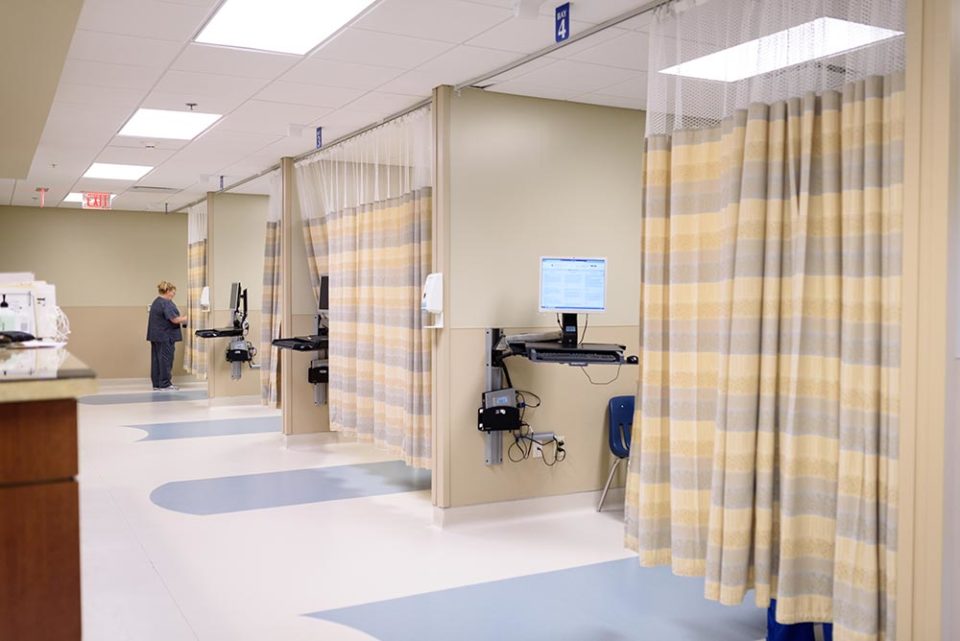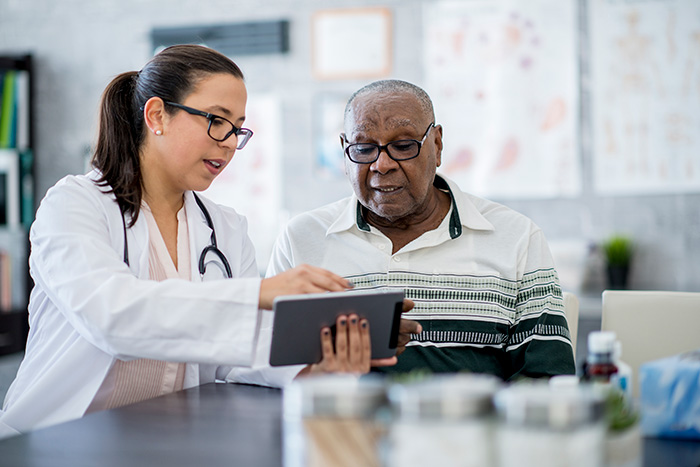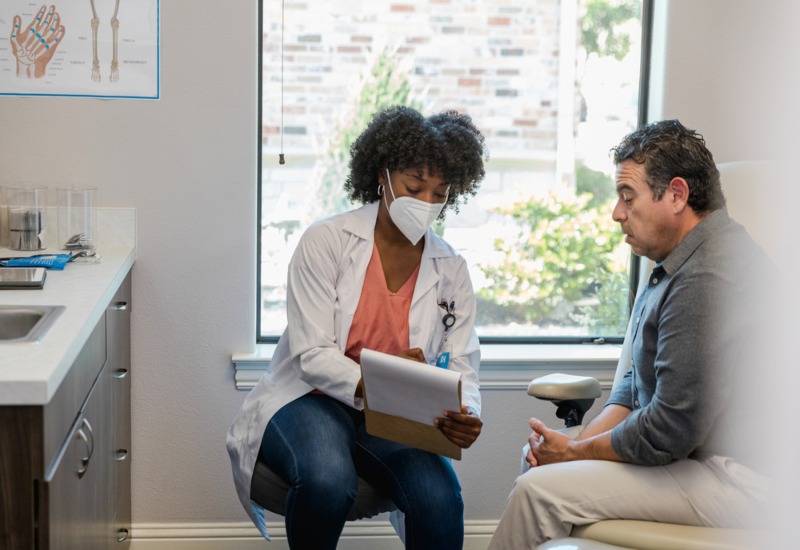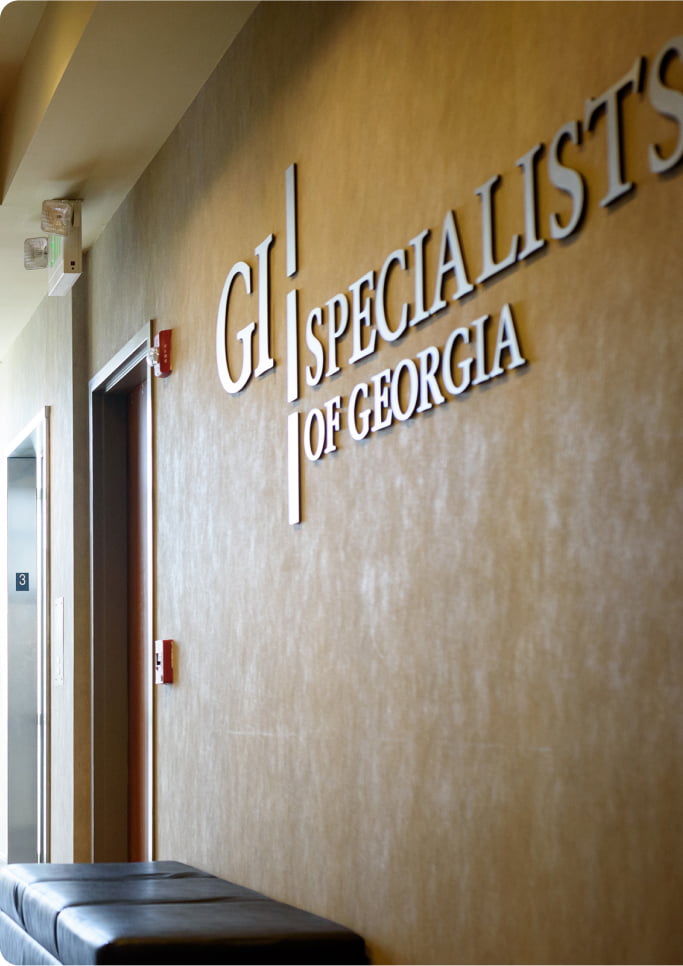ERCP Procedures Performed by Experienced Physicians
For the last 30 years, the GI Specialists of Georgia have provided patients with endoscopic retrograde cholangiopancreatography (ERCP) throughout the Atlanta, GA area. We've successfully performed these procedures for decades, so you can rest assured you are in capable and qualified hands when you choose GI Specialists of Georgia for your upcoming ERCP procedure.
Preparation

What is ERCP?
Endoscopic retrograde cholangiopancreatography (ERCP) is a medical procedure that combines an upper gastrointestinal (GI) endoscopy and x-rays to diagnose and treat problems and diseases present in the liver, gallbladder, bile ducts, and pancreas.

When is ERCP Needed?
When a problem arises in the liver, gallbladder, bile ducts, or pancreas, doctors will use ERCP to diagnose and treat these problems. Problems with the liver can include jaundice and liver cancer. Problems with the gallbladder might consist of gallstones and cholecystitis (inflamed gallbladder). Problems with the bile ducts could include cancer, stones, and strictures. Problems with the pancreas can include pancreatitis, pancreatic cancer, pancreatic cysts, and pseudocysts. Your health care provider at GI Specialists of Georgia may recommend ERCP if you are exhibiting symptoms of any of the above.
How to Prepare for ERCP
Before undergoing ERCP, it's essential to let your doctor know if you have any medical conditions, such as lung conditions, heart conditions, bleeding disorders, allergies to medications, latex, tape, or anesthesia. To prepare for your ERCP procedure, it's essential to talk with your doctor, follow their instructions, and have a ride home set up. Your overseeing physician will go over the ins and outs of the procedure, and you should ask any questions you have about it. You will need to tell your doctor if you have ever had a reaction to any contrast dye, are allergic to iodine, are pregnant, and what medications you are taking. We advise patients not to eat or drink liquids for eight hours before the procedure.
What to Expect During ERCP
ERCP can take between one and two hours, based on your condition. Numbing medication may be sprayed into the back of the throat to help prevent gagging on the endoscope. During the procedure, you will be unable to swallow the saliva collected in your mouth. There will be a tool on hand that can suction the salvia from your mouth if needed. Once your throat is relaxed, a mouthguard will be placed in your mouth to protect your teeth. Next, the endoscope will be gently inserted through the mouth and carefully moved through the throat and into the stomach and the initial part of the small intestine called the duodenum until it reaches the ducts of the biliary tree. A plastic tube is passed through the endoscope and into this opening. Dye is then injected, and x-rays are taken.

What to Expect After ERCP
Typically, patients remain in a recovery room for an hour after the procedure. This is for typical observation. It's expected that patients will experience some soreness in their throat after the procedure. You may need to use throat lozenges for pain relief, and we advise eating soft foods for a day or two until the soreness subsides. Because patients should not drive or operate machinery for at least eight hours after ERCP, it's important to have someone pick you up after the procedure and stay with you for 24 hours to monitor you if possible. Some bloating and nausea are common. After one day of rest, you should be fine to return to work and your normal activities.
Contact Us Today About ERCP
If you’re suffering from problems with your liver, gallbladder, bile ducts, or pancreas, an ERCP might be the most effective way to diagnose and treat your symptoms and what’s causing them. With more than three decades of experience, you can rely on the experts at GI Specialists of Georgia to provide you with premier procedures, top-of-the-line equipment, and exceptional customer service.
Schedule an Appointment with Our Atlanta-Area Gastroenterologists
Whether you’re here for an endoscopic ultrasound or a colonoscopy, we will treat you with the utmost respect and dignity. Our gastroenterologists in the Douglasville and Northwest Atlanta area believe in the importance of educating our patients on a variety of health topics, ranging from anemia to gastrointestinal infections, cirrhosis of the liver, and pancreatitis. To schedule an appointment with one of our board-certified gastroenterologists, please contact GI Specialists of Georgia today.
"*" indicates required fields

